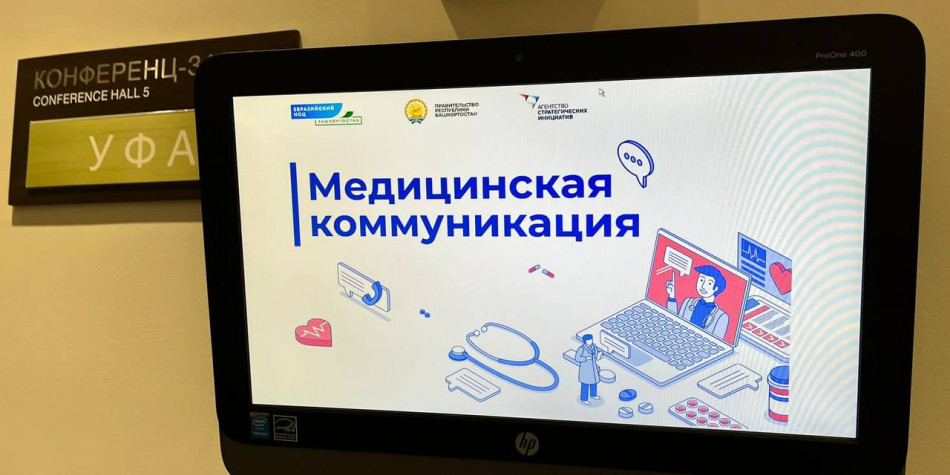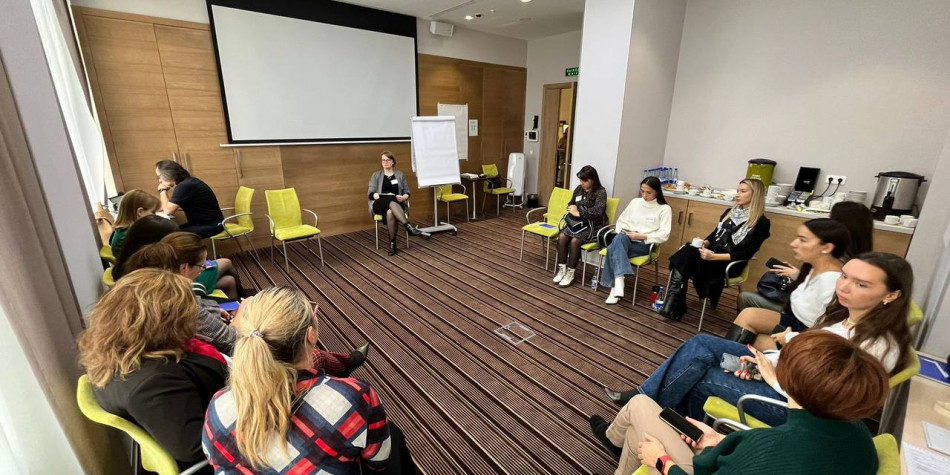
Within the framework of the activities of the Eurasian REC and the Institute of Regional Service Commissioners, a training training was held
"Medical communications".
The basis for the implementation of promising areas of the REC is not only projects aimed at the development of technological progress, but also projects related to the implementation of important tasks in the field of medicine and genetics.
REC participants – universities, scientific organizations and leading medical institutions of the republic are implementing a project within the framework of the program of activity of the Eurasian REC "Genomics and digital predictive analytics systems for personalized medicine". They develop genetic test systems, intelligent information systems based on personalized medicine, and, of course, provide medical consulting services.
Building proper patient-doctor communication plays an important role in modern medicine. Often we hear that
the doctor has shifted the boundaries of empathic understanding. In order to neutralize these problems, the Competence Development Center of the Eurasian REC and the Institute of Regional Service Commissioners for the Republic of Belarus held a training event on "Medical Communications".
The training was taught by specialists of the Sechenov University Accreditation and Simulation Center, candidates
of medical sciences: Bottaev Nazir and Zolotova Elizaveta, experts of medical organizations.
The participants of the Eurasian REC are specialized specialists, studied in detail the directions of the communication policy of medical
institutions in modern conditions, the theory of doctor-patient communication, ethical principles and practical models of interaction on the example of coordinating a treatment plan with the patient's parents and the patient himself.
"If the relationship between doctors and patients in a medical institution is built on the basis of empathy and partnership, then this is
an institution where patients trust doctors, and together they manage to do the maximum to improve the patient's health and improve his quality of life, without wasting time and effort on complaints and conflicts. And it is also an institution to which patients return and recommend it to others. And for doctors, as a rule, in such places the problem of professional burnout is not as relevant as in institutions where medical care is structured differently.
It was a pleasure to work with the band: caring people gathered, ready to learn. The training turned out to be especially productive, because doctors, representatives of the medical university, and people involved in the organization of medical care met there," said Clinical psychologist, specialist in communication in medicine, member of the International Association for Communication in Medicine Anna Vladimirovna Serkina.
Experts within the framework of the educational program emphasized that improving the efficiency of medical organizations,
building empathic relationships with patients inevitably leads to satisfaction with the work of medical institutions.
We are moving on and introducing new tools and methods based on the principles of service design that will help people receive social services faster, easier and more efficiently.



